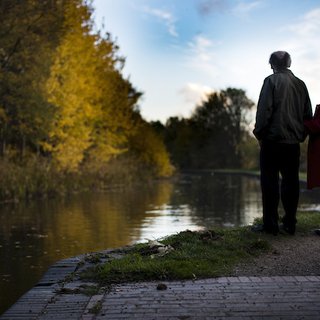What gave me hope was hearing other people’s stories
Katherine talks about her lymphoma diagnosis at the age of 30, and how much it helped to hear from others who’d been through blood cancer themselves.
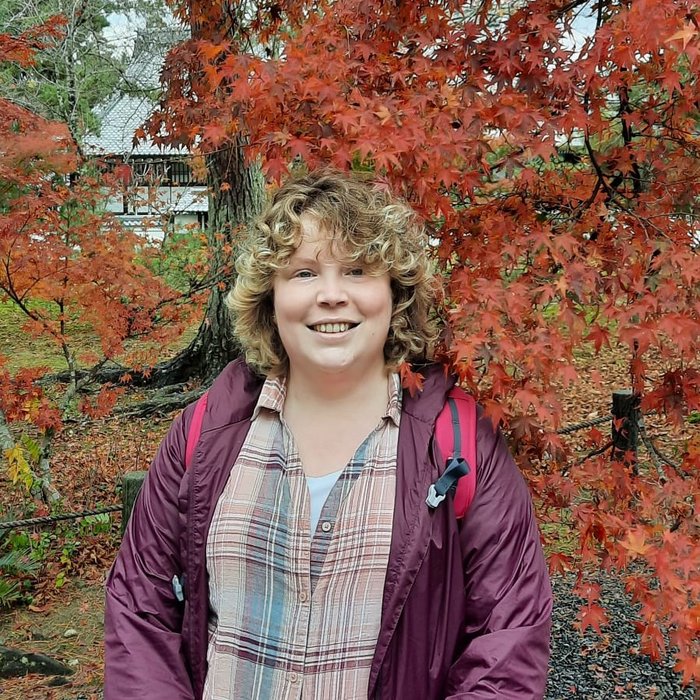
I was diagnosed with T cell rich B-cell non-Hodgkin lymphoma (stage 4B) in February 2021. I went into hospital during the second lockdown, a few days after my 30th birthday, with a high temperature.
I wasn’t aware of lymphoma symptoms at the time so thought my night sweats and temperature spikes were either covid or flu. I had a phone call with my GP who told me to get straight to hospital for tests. She assumed it was a problem with my kidneys. I even called Royal Worcester Hospital to make sure it was okay for me to come to A&E! The warnings not to go to hospital had been clear so it was the last place I wanted to go. Even the GP said she wouldn’t normally recommend someone to go during a pandemic but this sounded serious and I needed to get the tests done that day.
It took 12 hours to be admitted and I was in hospital for a month afterwards. I don’t remember much that day apart from going down to the CT scanner because it was cold and the radiographer squeezed my hand.
Being in hospital was hard during that time because visitors weren’t allowed, especially not on the haematology ward. I imagine it was worse for my mum getting that news over the phone. It was very different from what I’d seen on movies when people get diagnosed. I am grateful for having had the support of the nurses, doctors, health care assistants and other patients. Everything happened very quickly once they realised what was wrong.
Coping with treatment
When I felt overwhelmed, I watched bloopers from the BBC show Ghosts to get myself out of my head. I made a rule for myself which was to not look anything up on the internet unless it was Blood Cancer UK, Lymphoma Action or Macmillan. Throughout treatment, I made sure the treatment team just told me what I needed to know.
There is no right or wrong way to deal with something as life changing as a cancer diagnosis. With the help of friends who are occupational therapists, I put in place coping strategies ranging from knitting whilst watching detective shows to reading Miss Marple in chronological order.
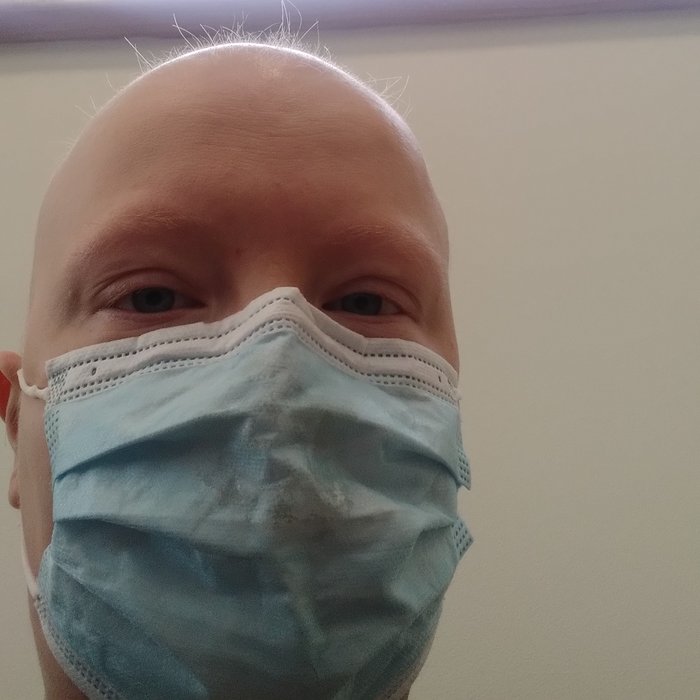
Dealing with side effects
Losing my hair wasn’t as traumatic as I thought it be. Another thing that surprised me during treatment was weight gain or maintaining my weight was a positive thing. Constipation turned out to be the biggest problem for me during chemotherapy! And I lost feeling in my fingertips for a few weeks so buttoning up shirts was another issue.
Some of the “chemo brain” moments were quite funny, which included putting my mug of tea in the fridge and carrying a four pint of milk into the living room.
I lost my taste for cheese and milk chocolate, it all tasted like clay. I developed a mild ginger biscuit addiction. Once my friends found out, they sent me all different types of ginger biscuits for me to review. (I still maintain ginger nuts from Lidl are the best.)
I couldn’t exercise like I used to because of fatigue and low blood pressure. Going for a walk once every two days was an achievement. I couldn’t go swimming because of shielding and having a PICC then a Hickman line in.
I made sure I didn’t compare myself to others online. Chemotherapy affects everyone very differently and I couldn’t stay as active as I’d have liked. For me the treatment was more of a marathon than a sprint so it was important for me to rest and recover before the next round.
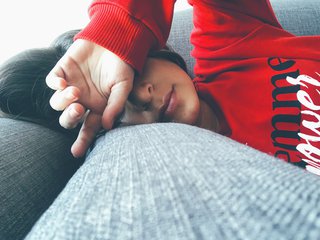
Find out more about side effects
Tips and real stories about side effects like hair loss, peripheral neuropathy, brain fog, sleep problems, infection risk, nausea and sore mouth.
The aftermath
I’m in my second year of remission and this year has been tough. I think it’s all starting to catch up with me about how ill I was and how much my body has physically gone through. I’ve found myself having to take antidepressants to ease the health anxiety and sleep properly. I’ve started at a local CrossFit gym which is helping with the survivor’s guilt.
Sometimes, if I have a slow day at work, I have a little voice in my head that says I should be doing more. I should be travelling or bungee jumping or something adventurous. But I like my job, I need an income, I don’t like heights and all I wanted to do during treatment was get back into a routine where I could live the life I wanted. Which didn’t involve bungee jumping.
So, after a slow day, I can work out at The Box and feel like I’ve achieved something. The same goes for swimming. I completed a 5K swim last year and am training for a 10K this year. It’s been hard getting back to being active. I’ve found little advice on getting moving again after cancer treatment. My feet hurt when I finished treatment, like someone was sticking pins in the bottom. The chlorine in the pool stung my skin at first. And I found it frustrating that I was still retaining water from all the steroids I’d been on.
I made sure I didn’t beat myself up about it, there was nothing I could have done to prevent getting cancer. I’m getting better at giving myself a pat on the back and taking my time with coming back to myself. The two best things I’ve done post-treatment are 1) told myself the universe doesn’t owe me anything but I owe it to myself to be happy and 2) asked for help. You shouldn’t feel obligated to be OK just because you’ve beaten cancer. Recovery is far more complicated than that, despite what others might think.
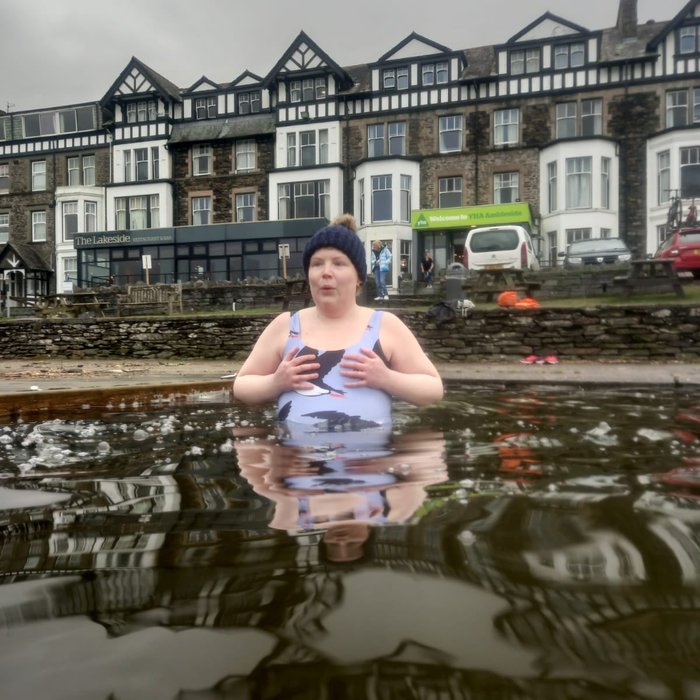
Finding hope
I think I’m only now starting to process how ill I was. But the thing that really helped me and gave me hope was listening, reading and watching other people’s stories of having cancer. Especially advanced blood cancer. In the movies a stage four cancer diagnosis is normally the turning point for a character to work through their bucket list or say goodbye. But hearing people who were still here after everything they’d been through gave me hope.
I’ve been in remission since August 2021 and that’s because of the NHS and lifesaving research into treatments. I joke that getting blood cancer was the worst 30th birthday present but I know it could have been worse. I’m looking forward to a future with my curly hair!
I want my story to give someone hope like the others who have shared theirs did for me.
Read other people's stories about living with blood cancer, and find other people going through similar experiences on our online community forum.


